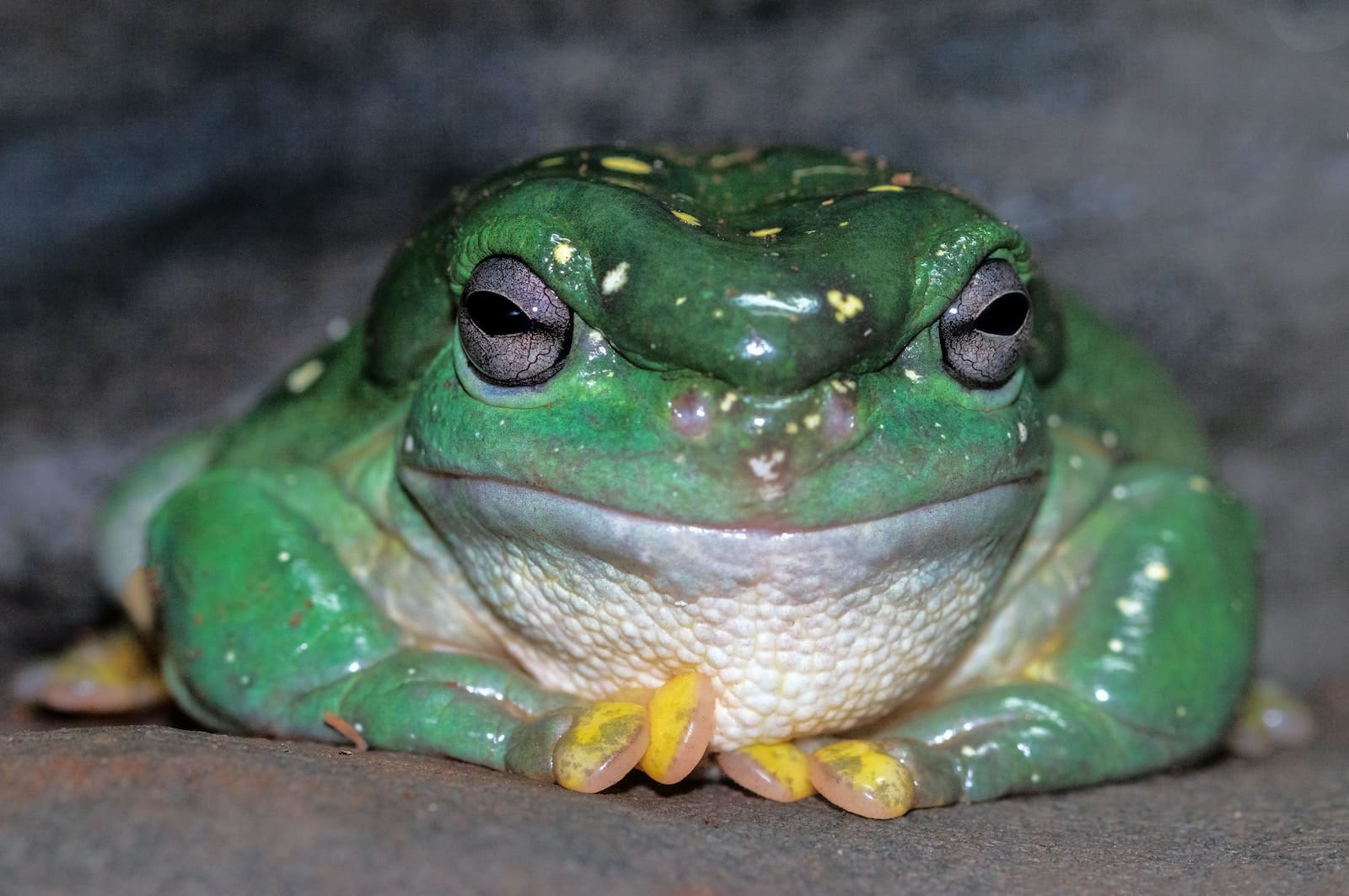Discovering the Meaning of Frogs in Your House
Frogs are fascinating creatures that have captured the imagination of humans for centuries. They play a significant role in many cultures and traditions, and their symbolism has evolved over time. One of the most intriguing aspects of frogs is their presence in our homes. Whether it’s a chance encounter or a deliberate visit, a frog in the house can hold a deeper meaning that is worth exploring.
In this article, we will delve into the different cultural interpretations of frogs in the house, as well as their significance in dreams, literature, and art. We will also examine the modern symbolism of frogs and their scientific perspectives. By the end of this article, you will have a better understanding of the meaning of frogs in the house and the impact they can have on our lives.
Key Takeaways
- Frogs have been a part of human culture and traditions for centuries, and their symbolism has evolved over time.
- The presence of a frog in the house can hold a deeper meaning, which varies depending on cultural interpretations, dreams, literature, art, modern symbolism, and scientific perspectives.
- Understanding the meaning of frogs in the house can provide insight into our lives and the changes that may be coming our way.
Cultural Interpretations
Frogs have been significant in many cultures around the world, and their appearance in the house often carries spiritual and symbolic meanings. Here are some cultural interpretations of frogs in different parts of the world.
Frogs in Native American Lore
In Native American cultures, frogs are regarded as symbols of transformation and change. They are believed to have healing powers and are associated with the cleansing element of water. In some tribes, frogs are also seen as messengers of rain and fertility. The Hopi tribe of Arizona, for instance, considers the frog as a symbol of abundance and prosperity.
Frogs in Asian Cultures
In Asian cultures, particularly in China and Japan, frogs are believed to bring good luck and fortune. The Chinese word for frog, “wa,” sounds similar to the word for wealth, and as such, frog figurines are often placed in homes and businesses to attract prosperity. In Japan, frogs are associated with the god of wealth, and it is believed that rubbing a frog figurine will bring financial success.
Frogs in African Traditions
In many African cultures, frogs are seen as symbols of fertility and abundance. They are also associated with rain and the cleansing power of water. In some tribes, frogs are considered sacred and are not to be harmed. The Igbo people of Nigeria, for example, believe that killing a frog will bring bad luck and misfortune.
Finally, the appearance of a frog in the house can carry different meanings depending on the cultural context. Whether it is a symbol of transformation, good luck, or fertility, frogs have been revered and respected in many cultures around the world.
Frogs in Dreams
Frogs are one of the most common animals that appear in our dreams. They can have different meanings depending on the context of the dream. Here are some positive and negative interpretations of dreaming about frogs.
Positive Interpretations
-
Rebirth and Renewal: Frogs are associated with water, which is often seen as a symbol of rebirth and renewal. Dreaming about frogs can mean that you are going through a period of transformation and growth.
-
Good Luck: In some cultures, frogs are considered to be a symbol of good luck and prosperity. Dreaming about frogs can be a sign that good things are coming your way.
-
Fertility: Frogs are also associated with fertility and the ability to reproduce. If you are trying to have a baby or start a new project, dreaming about frogs can be a positive sign.
Negative Interpretations
-
Deception and Betrayal: In some cultures, frogs are associated with deception and betrayal. Dreaming about frogs can be a warning that someone close to you is not being honest.
-
Illness and Misfortune: In some cultures, frogs are believed to be carriers of disease and misfortune. Dreaming about frogs can be a sign that you or someone close to you may be facing health problems or financial difficulties.
-
Fear and Anxiety: Finally, dreaming about frogs can be a sign of fear and anxiety. If you are feeling overwhelmed or stressed, your subconscious mind may be using the image of a frog to symbolize your emotions.
Finally, dreaming about frogs can have different meanings depending on the context of the dream. While some interpretations are positive, others can be negative. It is important to pay attention to the details of the dream and your own feelings to get a better understanding of what it means.
Frogs in Literature and Art
Frogs have been a popular subject in literature and art for centuries. In classical antiquity, Greeks and Romans associated frogs with fertility, harmony, and licentiousness in association with Aphrodite. In Aesop’s fables, frogs were often featured as characters with human-like qualities, such as in the story of “The Frog and the Ox,” where a frog tries to puff itself up to be as big as an ox.
In modern literature, frogs have been featured in children’s books and fairy tales, such as “The Frog Prince” and “The Tale of Jeremy Fisher” by Beatrix Potter. Frogs have also been used as symbols in poetry, such as in the famous poem “The Waste Land” by T.S. Eliot, where the image of a frog represents the cycle of life and death.
In art, frogs have been depicted in various ways, from realistic depictions to more abstract interpretations. In Japanese art, the frog is a symbol of good luck and is often depicted in paintings and prints. In Western art, frogs have been used as a symbol of transformation and rebirth, as seen in the famous sculpture “The Frog Prince” by Edvard Eriksen.
Overall, frogs have played a significant role in literature and art throughout history, representing a range of meanings and symbolisms.
Frogs in Modern Symbolism
In modern times, frogs have taken on various meanings and symbolisms. Here are some examples:
-
Transformation: Frogs have long been associated with transformation due to their life cycle. They start as tadpoles and transform into adult frogs, signifying growth and change. In modern symbolism, frogs can represent personal transformation, metamorphosis, and change in general.
-
Renewal: Frogs are often associated with water, which is a symbol of renewal and cleansing. As such, seeing a frog in your house may indicate that it’s time to let go of old habits, patterns, or beliefs that no longer serve you. Instead, embrace new opportunities and experiences that will help you grow and renew.
-
Good luck: In many cultures, frogs are considered to be a symbol of good luck and fortune. If you see a frog in your house, it may be a sign that good things are coming your way. Embrace the positive energy and look for opportunities to improve your life.
-
Spiritual guidance: Some people believe that frogs are spiritual guides that can help us navigate through life’s challenges. If you’re feeling lost or uncertain, seeing a frog may be a reminder to trust your intuition and seek guidance from within.
Finally, frogs have a rich history of symbolism and meaning that continues to evolve in modern times. Whether you see them as a sign of transformation, renewal, good luck, or spiritual guidance, there’s no denying their powerful presence and impact on our lives.
Scientific Perspectives
Ecological Significance
Frogs play an important role in the ecosystem as both predator and prey. They are known to consume a variety of insects, including mosquitoes, which can carry diseases like malaria and West Nile virus. In turn, frogs are preyed upon by birds, snakes, and other animals.
Frogs also play a key role in nutrient cycling. Their tadpoles feed on algae and other organic matter, while adult frogs help to disperse nutrients as they move through the environment.
Frogs as Bioindicators
Frogs are often used as bioindicators, meaning they can provide information about the health of an ecosystem. Because they are sensitive to changes in their environment, such as pollution or habitat loss, their presence or absence can indicate the overall health of an ecosystem.
Scientists can study the behavior, growth, and development of frogs to better understand the effects of environmental stressors on the ecosystem. For example, changes in frog populations could indicate changes in water quality or the presence of pollutants.
Overall, frogs are an important part of the ecosystem and can provide valuable information about the health of the environment.
Conclusion
Finally, encountering a frog in your house can be a positive and spiritual experience. The frog is a symbol of adaptability, transformation, and growth, and its presence in your home can indicate the need for renewal or conversion.
Native American cultures associate the frog with rain, life, and fertility, further emphasizing its positive symbolism. The frog’s ability to live on land and in water makes it a versatile and balanced creature, representing the importance of balance in all aspects of life.
If you encounter a frog in your home, try not to be afraid or alarmed. Instead, embrace the positive symbolism and consider it a message to let go of old habits and embrace new beginnings. Take the opportunity to cleanse your mind, body, and spirit, and pursue the opportunities you desire.
Remember, the frog is a powerful symbol of transformation and growth. Embrace its energy and use it to inspire positive change in your life.


